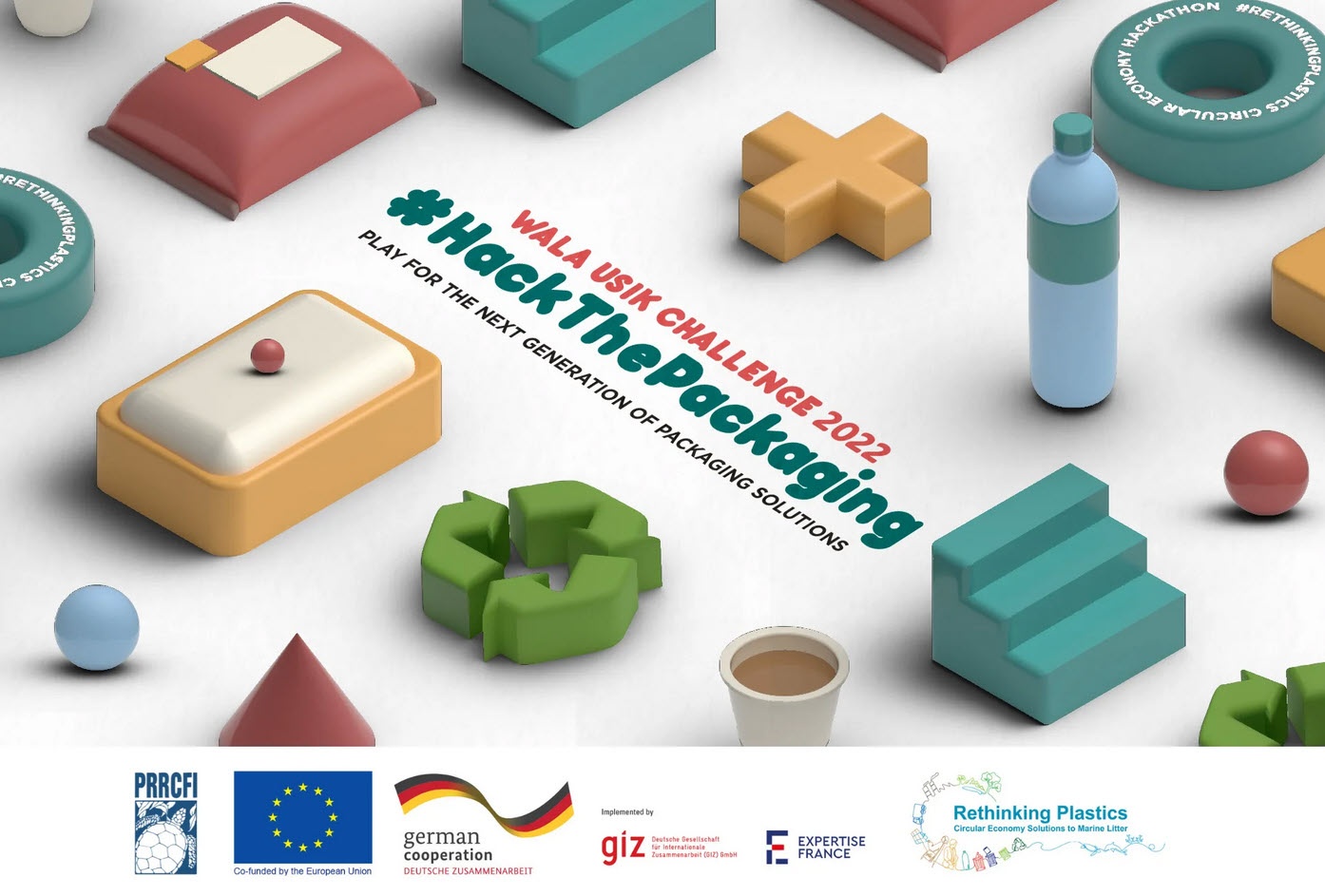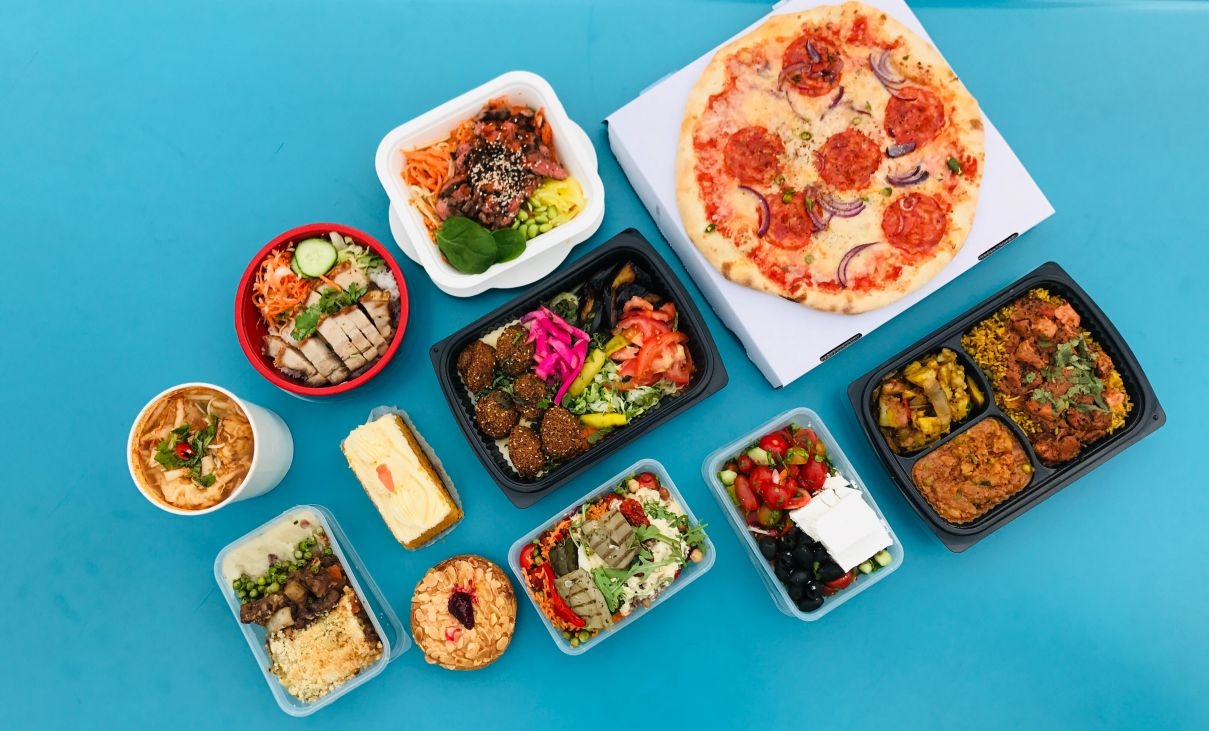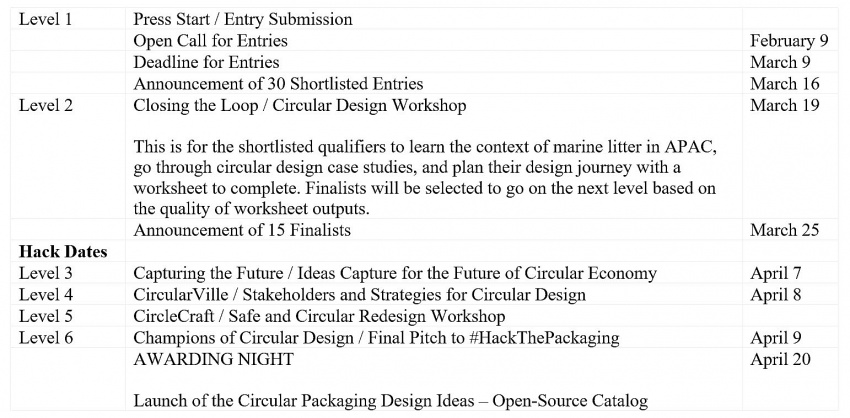#HackThePackaging challenge opens registration for creative minds from Vietnam
In a circular economy, resources are used and managed in a more efficient and sustainable way through reducing, reusing, and recycling. With this, materials and resources are returned back to the economy and used again for as long as possible. The challenge follows this principle and received its name from the local phrase Wala Usik in the Philippines, meaning “nothing is wasted.”
The event is free and open to anyone from the seven countries in the Rethinking Plastics project: China, Indonesia, Japan, Philippines, Singapore, Thailand, and Vietnam. The hackathon will be accepting entries from 9 February to 9 March at prrcf.org/hackthepackaging.
 |
| #HackThePackaging challenge opens registration for creative minds from Vietnam |
“We’re gamifying the processes of learning and applying circular design, and as an output, we hope to reach even more creative minds with an open-source magazine-catalog (or magalog) of packaging solutions,” says Dave Albao, executive director at PRRCFI.
“We literally have to think out of the box, in generating design ideas for packaging that will reduce single-use plastics and other polluting materials in food delivery and takeaways, e-commerce shipping, and retail of fast-moving consumer goods.”
A shortlist of 30 individuals or teams will be chosen to participate in a circular design workshop with thought leaders in sustainability. Only 15 finalists will make it to the Hack Dates in April 2022 and unlock the next levels in a virtual 3-day rapid design thinking process, supported by mentors to ideate and prototype the final #HackThePackaging pitches.
The best ideas will be awarded up to €1,000 ($1,140) each, and all generated concepts may be visualised in an open-source magalog for circular packaging design Ideas to inspire everyday circular thinking and future business ventures in the circular economy.
 |
| One of the major issues in plastic waste management is food packaging, which is the main challenge to solve at the hackathon |
Ideating for this hackathon is meant to be a fun, creative, and collaborative learning experience – but like any game, there are rules to follow: ideas need to (1) design out waste and pollution, (2) keep materials in use, and (3) regenerate natural resources.
Join the Hackathon
Anyone with a creative mind can participate. In fact, the more unique your skills and talents, the better! We’re looking for designers, artists, strategists, innovators, and the like – whether your expertise is science, fashion, or technology, or if you are a student or professional, all we ask is for the drive to #HackThePackaging.
Submit your application by answering the form at the above-stated URL. Applicants then need to follow these two steps:
1. A 2-minute video on: “What does it take to #HackThePackaging?”
Introduce yourself or your team and share your thoughts on the packaging problem and what it takes to solve it. You may briefly share initial idea(s) on how you will #HackThePackaging (having concrete ideas/solutions is not required at this point). If possible, mention your skill sets, experience, or network that will be useful for your participation in the hackathon.
2. Either a 200-word note or another 2-minute video on:
What does circular economy mean to you? Why would you like to join the challenge? What are your strengths? And/or what would you like to learn from this hackathon? 2. An optional attachment (1-page PDF) for visuals that could support your entry.
The hackathon will be conducted in English, so all entries must be in this language. Individual entries may partner with a translator, and team applicants may include a translator.
A screening process will identify 30 shortlisted entries to go on to Level 2, based on how well they articulate their thought process in solving the plastic packaging problem and the quality of their answers demonstrating their potential as a circular designer.
Key dates
 |
Project Partners
Wala Usik Challenge 2022: #HackThePackaging is organised by PRRCFI for the “Rethinking Plastics – Circular Economy Solutions to Marine Litter” project, co-funded by the European Union and the German Federal Ministry for Economic Cooperation and Development (BMZ) and jointly implemented by the Deutsche Gesellschaft für Internationale Zusammenarbeit (GIZ) GmbH and Expertise France.
About “Rethinking Plastics — Circular Economy Solutions to Marine Litter”
This project supports a transition towards a circular economy for plastics in seven countries in East and Southeast Asia to contribute to a significant reduction of marine litter. It works, amongst others, in the areas of plastic waste management, sustainable consumption, and production of plastics, as well as the reduction of litter from sea-based sources to reduce plastic waste and its leakage into the sea. Partner countries are China, Indonesia, the Philippines, Thailand, and Vietnam as well as Japan and Singapore for selected topics. More information can be found at rethinkingplastics.eu.
What the stars mean:
★ Poor ★ ★ Promising ★★★ Good ★★★★ Very good ★★★★★ Exceptional
 Tag:
Tag:
Related Contents
Latest News
More News
- Keppel Land raise plastic waste awareness (July 09, 2022 | 13:45)
- 3Vs for gender-inclusive circular era (July 01, 2022 | 14:33)
- Alliances formed in mission to alter behaviours (July 01, 2022 | 14:19)
- Plastic use drop hinges on consumers (July 01, 2022 | 14:03)
- Mainstreaming circular plastic plans (July 01, 2022 | 13:18)
- Applying popular new methods to combat single-use plastic habit (July 01, 2022 | 10:00)
- Retailers endeavor to promote sustainable consumption patterns (June 24, 2022 | 14:46)
- BAEMIN extends green journey in Vietnam (June 23, 2022 | 14:51)
- Closing event of Rethinking Plastics heralds new age of combatting plastic pollution (June 23, 2022 | 11:53)
- Talkshow Innovative Solutions & Substitutes for Single-use Plastic towards Green Consumption (June 22, 2022 | 20:46)






















 Mobile Version
Mobile Version